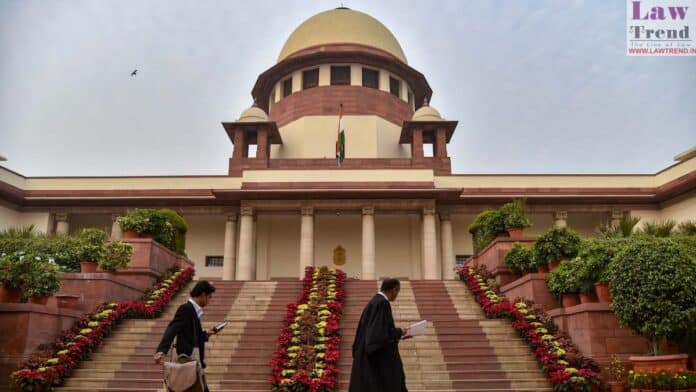The Supreme Court asked the Centre and the states on Tuesday to take effective steps to “unclutter” jails as it would eventually lead to cleansing of the criminal justice system.
“Everybody talks about the cluttering of jails in the country and the people from socially weaker sections are languishing in jail. Some thought process we wanted from the government … by taking steps, you not only unclutter jails but you will unclutter the criminal justice system in the country,” a bench comprising Justices Sanjay Kishan Kaul, Ahsanuddin Amanullah and Aravind Kumar said.
The bench, which was hearing a 2021 suo motu (on its own) case on the “Policy Strategy for Grant of Bail”, made the observations after amicus curiae (friend of court) Gaurav Agrawal referred to the data on issues such as non-release of undertrial prisoners (UTPs) and convicts despite being granted bail, their premature release and the status of plea bargaining in the country.
On the issue of releasing UTPs under the plea-bargaining scheme, where an accused in certain offences accepts the guilt and is let off with a minor punishment, the bench expressed concern and said, “Keeping in mind the celebration of 75 years of independence, if these matters (of the accused) can be identified and released considering the pendency of the cases, it would be worth experimenting.”
The amicus curiae referred to a written note and said more than 5,000 accused and convicts were identified till December 31 last year, who were not released despite being granted bail.
He said, “5,362 such prisoners were identified till December 31, 2022 and 2,129 were released till March 13 this year. Around 600 people could not be released due to the pendency of multiple cases against them. In some cases, the modification of the orders has been sought. And about 2,000 cases are still pending.”
The bench also raised the issue of software and said there has to be a “better ability” on the part of jail authorities to put data in the public domain and the National Informatics Centre (NIC) has to play a proactive role in training them.
“We understand that there is a system used in Gujarat, which is named ‘Email My Case Status’. We have requested the amicus to look into that aspect, if it can be successfully used for other states,” it said.
The amicus curiae also referred to the status of plea bargaining, compounding of offences and probation in various states.
He said in the last two months, 1,428 cases of plea bargaining were dealt with.
Earlier, the National Legal Services Authority (NALSA) had told the Supreme Court that according to recent data, about 5,000 UTPs were in jails despite being granted bail and 1,417 of them have now been released.
In a report filed in the apex court, the NALSA said it was in the process of creating a “master data” of all such UTPs who are unable to furnish surety or bail bonds due to poverty, including the reasons for their non-release from prison.
The top court had earlier flagged the issue of UTPs who continue to be in custody despite being granted bail on account of their inability to fulfil the conditions for the relief.
It had asked the states to issue directions to jail authorities to give the details of such UTPs to the NALSA, which will process it for making necessary suggestions on how to deal with the issue and provide legal assistance wherever necessary.
In the report, the NALSA had sought several directions from the apex court, including to the effect that a court that grants bail to an UTP or a convict would be required to send a copy of the order to the prisoner through the jail superintendent on the same day or the next day.
It had further sought a direction that the DLSA secretary, with a view to find out about the economic condition of an accused, may take the help of probation officers or paralegal volunteers to prepare a report on his socio-economic conditions, which may be placed before the court concerned with a request to relax the conditions of bail or surety.




